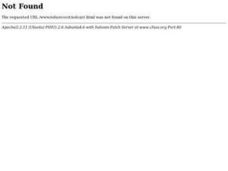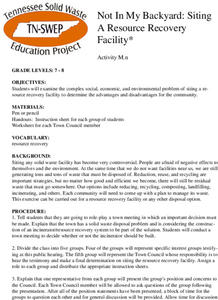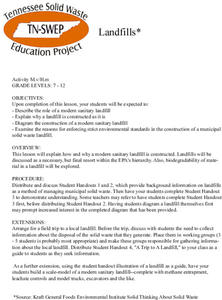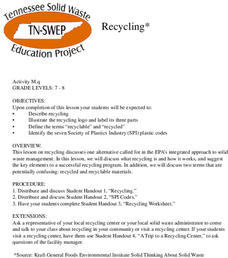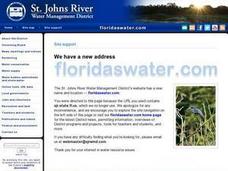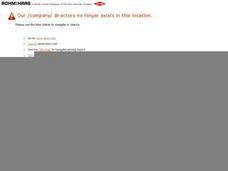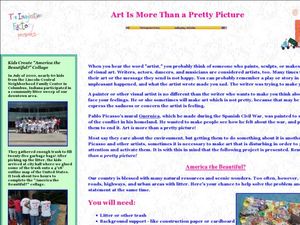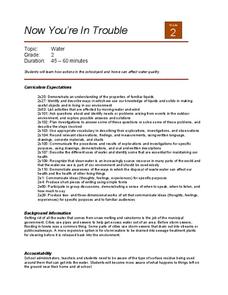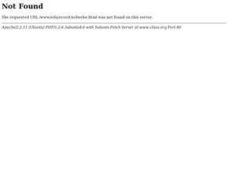Curated OER
Recycling: The Way to Save...Fad or Fact
Young scholars write stories about recycling and illustrate them. They examine various containers and determine whether or not they are recyclable. They make a chart about the containers and visit a recycling center.
Curated OER
When it is Wrong to Belong: Scavenger Hunt
Students participate in a scavenger hunt to find different types of trash items around different environments. They distinguish between man-made litter and natural materials.
Curated OER
Not In My Backyard: Siting A Resource Recovery Facility
Students role play a town meeting in which a new resource facility could be built. They have time to question each other after all sides have presented.
Curated OER
Landfills
Students explore the roles of sanitary landfills. They diagram the construction of a landfill and visit a local landfill.
Curated OER
The Principles Of Composting
Students put items in a plastic bag and watch the effects of composting. While completing the experiment, students answer questions and ask permission to start their own compost pile at home.
Curated OER
Ecology of the Dump
Students determine which types of garbage are biodegradable and which are nonbiodegradable. They practice measuring skills, hypothesizing, taking data, and writing a lab report. Students observe the relative biodegradability of metal,...
Curated OER
Point- vs. Non-point Pollution
Students differentiate between point and non-point pollution and determine how the different types of pollution are harmful to aquatic ecosystems. They complete a series of tests on a sample of "polluted" water and a sample of "pure" water.
Curated OER
Lesson 12 - Landfills, Leaks and Spills
Learners define spill, leaks and landfills and identify the environmental problems caused by them. They complete worksheets and a quiz.
Curated OER
Not Just a Fish Tank
Students learn about a specific species of fish, study the effects of outside substances on the reproductive development of a fish, and explore the process of a wastewater treatment facility.
Curated OER
The Impact
Students investigate the impact inventions have on society. In this technology lesson, students review the facts they learned about famous inventors and brainstorm an invention that can improve people's lives. Students use a graphic...
Curated OER
Art Is More Than Just a Pretty Picture
Learners create unique art piece from litter. In this visual art lesson, students learn the importance of recycling and create a unique art piece. Learners construct collages.
Curated OER
Make a difference
Students figure out math equations based on the recycling of cans and gas consumption. In this recycling lesson plan, students have challenge cards that ask them challenge questions on how to save gas and what a difference recycling can...
Curated OER
Landfill Lounge
Young scholars accurately construct a model of a sanitary landfill and identify the parts of the landfill and explain their function. They work in grous using a clear plastic box, modeling clay, soil and a variety of garbage to create...
Curated OER
Now You're In Trouble
Second graders study how actions in the schoolyard and home can affect water quality. They discuss how rainwater can clean plants and sidewalks on its way to storm sewers. They draw an example of a simple maze that represents the maze...
Curated OER
Compost Columns
In this unit of lessons, students examine the role of compost columns and recycling. They create a KWL chart about garbage in Chicago. They also examine life cycles and packaging of everyday products.


